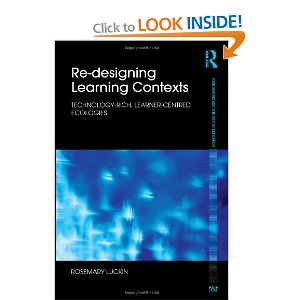AI is both a cause and a solution to the problem of a world where there is far more information than any one person can possibly effectively process to construct their own understanding about what they believe and what they don’t. AI can amplify the echo chamber by promoting the most believed over the most evidenced. BUT it can also help us to recognize valid information from noise, IF we know the right questions to ask and IF WE KNOW HOW TO WORK WITH OUR AI we can develop deep understanding and escape from the maze of invention…
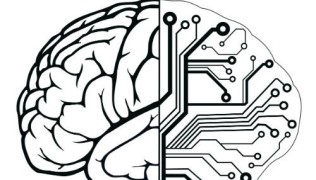
Early in my career I was advised that if I wanted to get a point across when teaching, during an interview, as part of a presentation or when debating, I must repeat the point I wanted to make three times. There is an empirical basis for this advice: something eloquently explained my Malcolm Gladwell and the motivation for my blog identity: The Knowledge Illusion. Put simply, when people are provided with more information about X, they believe that they know more about X, when in fact they often know less about X. I wrote about this many blogs ago (transcribed below for ease of reference) to draw attention to the essential need to help people decipher the huge volume of information that comes their way so that they can discern what is genuine from what is fake.
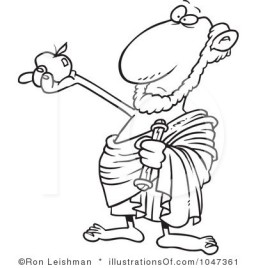
I still follow the “say things three times” advice in my endeavour to communicate what I consider to be valid, some might say truthful, information. My objective is to persuade people that my perspective, opinion, or information presentation is the stuff to be believed. However, I accept that it is entirely up to my audience to decide whether or not they are won over. The importance of this subjective experience and the belief that an audience are actively analysing the information that comes their way is ever more important. In a world of echo-chambers and deluge of social media, we need people to be able to look at a stream of data and information and make intelligent decisions about what they believe to be the stuff of knowledge.
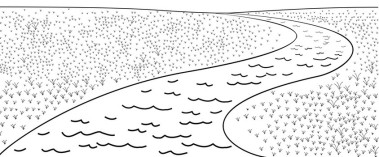
The problem is not new. It was JFK who once observed that “No matter how big the lie; repeat it often enough and the masses will regard it as the truth.” This is an enormous insult to the intelligence of the “masses”, but unless we pay attention to helping these “masses” to navigate through the morass of mediocracy that social media precipitates, proliferates and perpetuates then we will return to the pre-enlightenment era when the world was flat and knowledge was the privilege of those who knew how to decipher the written word and who acted as the mouth-piece for and the collective intellect of their communities: the “masses”.
The word “masses” is no longer widely used so let’s just refer to the “masses” as the people: the global human race whom education is intended to equip with the skills and abilities to think and make sense of the world and the information others produce about it. To consider what it is we need to do to help people to make sense of the world it is worth travelling even further back in time to the views of Roman Emperor Marcus Aurelius that: “Everything we hear is an opinion, not a fact. Everything we see is a perspective, not the truth.” We need to encourage a nuanced belief system where people are provided with the skills, confidence and resources to construct their own understanding from the tidal wave of data and information that threatens to engulf them.
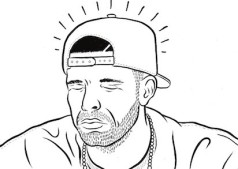
Again, history can help to inform us. The scientific revolution set the stage for the age of enlightenment that transformed the human race and promoted the importance of reason. Influential thinkers like Bacon, Locke and Descartes paved the way for the likes of Voltaire, Kant and Smith. Life was so much simpler then of course, but the huge increase in what it is possible for an individual to try to understand and know does not discount the important role that influential thinkers can play.
The birth of the www and social media represent a new generation of publications that play the role of the encyclopedias and dictionaries in the age of enlightenment. BUT who are the key philosophers and scientists who can catalyze the popular debates in the way that the philosophers of the enlightenment did? Stephen Hawking would probably be high on the list of influential thinkers who many people (the “masses”) might be able to name. Who else?
Whilst the volume of information and data about the world has ballooned, the number of influential thinkers who can help people find their way to knowledge and understanding has may not have kept pace. Technologies that harvest the ‘wisdom’ of the crowd often promote the loudest shouters and the most-followed, rather than the considered and grounded reasoning of the real intellectuals. The demise of expertise has exacerbated the problem as professional predictions have failed to materialize…. Let’s just stop there for a moment.
Could the real problem be that we, the people, don’t know how to interpret expertise? We want simple answers when there are none to be had. In schools we still encourage the belief that rote learning and subject specific information of the type that can be reproduced by a single person when challenged with a standardized test sufficient. This outdated approach gives the impression that knowledge and understanding are way more simple than they really are. They encourage people to believe that there is a body of stuff that they need to learn and reproduce, and that if they can do this they will be knowledgeable. However, what we should be doing is ALSO encouraging people to constantly probe, prod, compare and conclude for themselves their understanding of the world so that they can apply this knowledge to solve the problems they encounter every day.
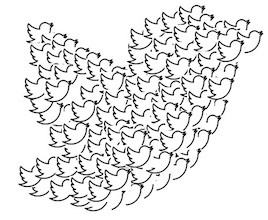
The surge of tweets that give the impression that meaningful things can be said in 140 characters is not always helpful either. There is certainly something to be said for trying to distil understanding into a short text — it is difficult and can test how much we really understand. However, the believe that a tweet can be the whole story in and of itself is misguiding. Knowledge and wisdom need to be worked at, by questioning, analyzing, aggregating and synthesizing to reach our own evidence-based beliefs about what we know and what we understand. Someone else’s tweet might start this process, but we have to finish it for ourselves.
Ai can help us to do the work here. AI can analyze and visualize complex data and information in order to literally help us see the ‘wood from the trees’. AI can be built to model human understanding and to justify the decisions and predictions that it makes. AI can explain to us how to complete complex activities, such as solving mathematical equations or managing a complex power plant. BUT Artificial and Human Intelligence must work together to help people extract the truth from the lies. We as humans must ensure that we know enough about what AI is capable of doing to ensure that we ask the right questions. We must learn to be discerning enough to challenge the AI when we are not convinced by what it is telling us.
This means that now more than ever we must educate the educators. Because educators must instill in us, the people, the investigative skills that we need to ask the right questions so that we can differentiate evidence from falsehood. Educators must encourage the confidence and self-efficacy in us that will help us believe our own minds. Educators must engender the perspective taking and integrative thinking that will enable us to work together to solve problems and to develop the influential thinkers we need now more than ever to enlighten us.

More relevant than ever…Information plenty, but knowledge famine: are we succumbing to an illusion?
 I am curious about knowledge, not in philosophical sense, but in a practical one. I worry about what it means to know something in a world that is increasingly complex, ill defined and interconnected: a world that demands that we develop, and that we ensure that our children develop, the knowledge capacity to solve the problems it manifests and those that we create.
I am curious about knowledge, not in philosophical sense, but in a practical one. I worry about what it means to know something in a world that is increasingly complex, ill defined and interconnected: a world that demands that we develop, and that we ensure that our children develop, the knowledge capacity to solve the problems it manifests and those that we create.
The first recollections that I have of my own curiosity about knowledge date back to 1966 when I was eight years old and growing up in Manfred Mann’s semi-detached suburbia: dad, mum, older brother and me. My father was an aircraft engineer and my mother taught typing and shorthand to women whose working lives were about to be dramatically changed by the word processing power of the digital computer. My brother was 3 years older than me, and his lack of interest in formal education was causing my parents some concern. Their reaction was to invest in ‘knowledge books’, or at least that’s how they saw the children’s book of knowledge and the encyclopedia that now filled up the bureau bookshelf. To keep us up to date, there was also the weekly general knowledge magazine that plopped on the doormat with a reassuring thud: the weight of its knowledge there for all to hear.
I suspect that my parent’s reaction to their son’s educational malaise was not an unusual one amongst the aspiring middle class families of our neighbourhood. My brother’s reaction to the new literary arrivals was cool; he was far more concerned with exploring the world of the woodland around our housing estate, than with sitting at home and reading about it. My father however, became quite addicted to the weekly general knowledge magazine. He did not have a great deal of time to read, but each evening when he went to bed he would sit in his paisley pyjamas and thumb through the pages. The stock of copies soon grew on the nightstand as his pace of reading failed to match the frequency of their arrival. The corners became slightly curled as the months and years passed and the dust gathered in and around the pile that now extended from the nightstand to the floor. His interest never waned and I do believe there were a pile of old issues by his bedside when he died many years later.
Forty years on and it’s a sunny day and I’m walking along the Euston Road in London. I pass the entrance to the British Library and a sign catches my eye, the sign says: “Step inside – Knowledge freely available”. I dislike the suggestion that one can walk into the British Library and just pick up some knowledge like going into Tesco and buying some bananas. I can relatively quickly formulate an explanation for myself about why the sign irritates me, because I have a clear idea about what I believe knowledge to be. I have moved on from the conception of knowledge loved by my father and represented by the pages of his books and articles. I know that I have to construct knowledge from the evidence available to me, that it is not handed to me by others, though they can certainly help me along the way, and that I can aspire to continually increase my knowledge by weaving together the information resources distributed throughout my world.
This is not the case for many of the youngsters who attend our schools and colleges. For them knowledge is still to be found in the dusty concepts in the out of date magazines on my father’s nightstand or on the shelves of a library they never visit.
“But what of the internet and world wide web?” I hear you wonder. These technological masterpieces offer information resources wherever we are and whenever we need them. These must surely pave the way for us to become more knowledgeable, both personally and as a human community?
The sheer abundance of this information has thrown into sharp relief our understanding of the relationship between information and knowledge. It makes my modest collection of childhood encyclopedias and my father’s overflowing magazine collection look like a speck of dust on the library shelf. I fear however that our understanding of what knowledge is and what it means to know something has not progressed in tandem with this technological progress. This puts us at risk of succumbing to the illusion that we know more than we actually do, because the more information we have the more we become certain that we know something.
Without helping young people to develop an understanding of what knowledge is in a digital age they cannot progress beyond the well meaning, but limited conception of knowledge promoted by the books and magazines that appealed to my parents. Those of us who understand what we mean by knowledge can indulge ourselves, as my father did with his magazines. But, without actively engaging people in the excitement of connecting the knowledge construction process to their own particular context, we merely encourage them to pass the opportunity by in the same way as my brother did all those years ago.
In a time of information plenty we are at risk of a knowledge famine.
I wrote thsi piece originally for Learning to Live – Creativity, Money and Love
